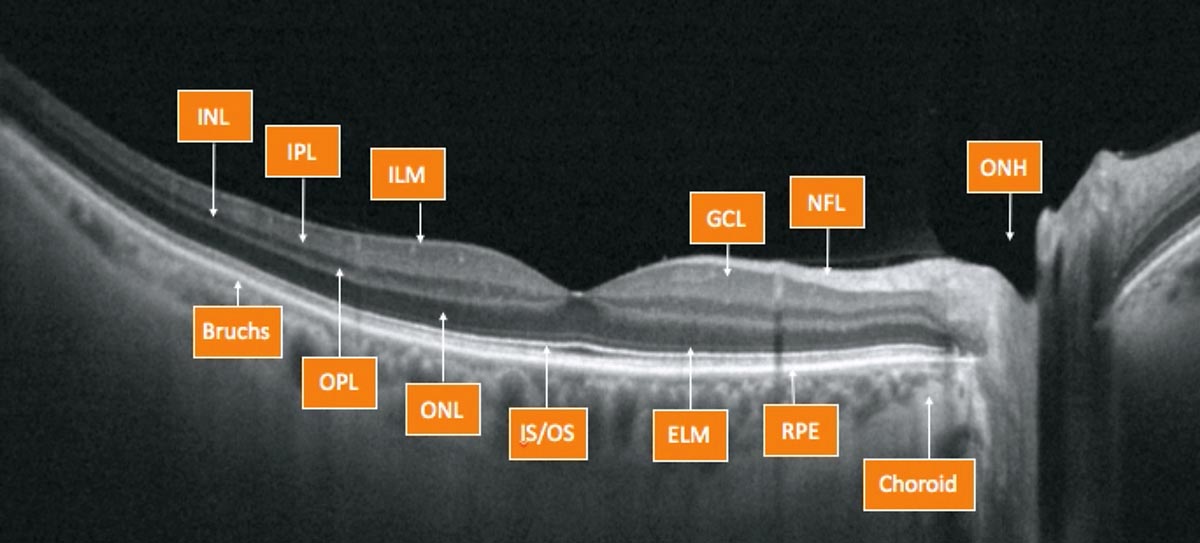 |
| Macular OCT may be a beneficial tool for cataract surgery assessment. Photo: Julie Rodman, OD. Click image to enlarge. |
OCT has become an essential tool in many aspects of eye care and has lately become increasingly used by cataract surgeons and comanaging optometrists due to the instrument’s ability to pick up vitreoretinal interface abnormalities such as epiretinal membrane (ERM) and lamellar macular hole (LMH).
In a recent study, researchers assessed the proportion of maculopathy detectable only on OCT vs. slit lamp indirect ophthalmoscopy during cataract evaluation.
A total of 626 patients were included. Results showed that the overall incidence of maculopathy on OCT during cataract assessment in the eye to be operated on was 26.5%, with dry AMD showing the highest incidence, followed by ERM, vitreomacular traction (VMT), LMH, diabetic maculopathy, cystoid macular edema, myopic maculopathy and least with neovascular AMD.
A total of 4.6% of fellow eyes were also detected to have maculopathy on OCT, which required further follow-up with the highest incidence being ERM, followed by VMT, neovascular AMD and central serous retinopathy. However, 12.8% of the patients had occult maculopathy detectable only on OCT.
Routine slit lamp exams are likely to miss 48.2% of patients with maculopathy, with VMT being toughest to diagnose, the study found. It further potentially overestimates the prevalence of dry AMD in 2% and ERM in 0.3% of cases.
Previous studies reported similar findings, indicating the importance of incorporating macular OCT in the preoperative evaluation for surgery. The authors noted that OCT is also necessary for follow-up after surgery.
“In summary, patients may have underlying maculopathy present when undergoing cataract surgery which is not visible on [slit lamp examination] alone,” the authors wrote. “Our study concludes that although clinical evaluation remains the mainstay of detection of significant macular lesions in cataract patients undergoing preoperative evaluation, a macular OCT scan is equally essential to ensure no ocular maculopathy is missed in the eye to be operated or the fellow eye.”
Knowledge of the underlying maculopathy will allow for an improved consenting process, informed decision-making with the patient, more accurate expectation of visual prognosis and better recovery following cataract surgery, the authors explained, which should improve the quality of care. They suggest macular OCT be an essential tool in routine cataract assessment.
Murphy G, Owasil R, Kanavti S, et al. Preoperative fundoscopy versus optical coherence tomography to detect occult maculopathy during cataract surgery preassessment. Eye (Lond). March 24, 2022. [Epub ahead of print]. |


